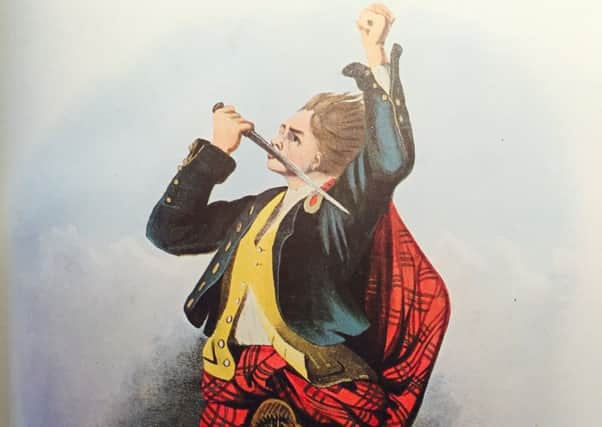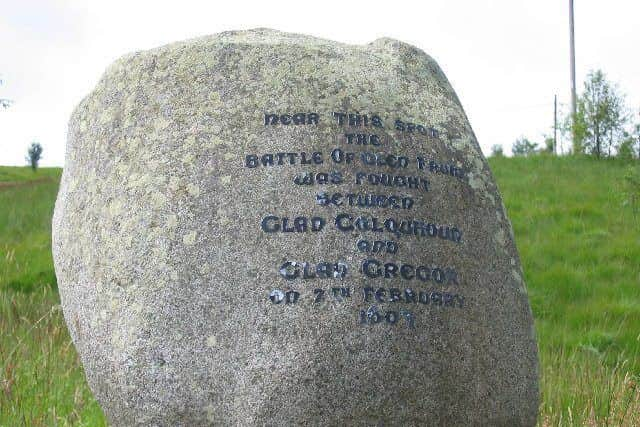When the name MacGregor was banned for 150 years


Following the bloodshed, James VI, in a bid to dismantle the clan, forced MacGregors - and Gregors - to drop their name or risk punishment by death.
Bloodhounds were allegedly sent to track down the clans people, who became known as “Children of the Mist” as they retreated to the remotest spots.
Advertisement
Hide AdAdvertisement
Hide Ad

Women of the name were stripped, branded and whipped through the street and members of the clan could not longer travel in groups of more than four or carry a sharp knife, according to the Clan Gregor Society.
Those who killed a MacGregor could do so with impunity and could receive rewards for doing so.
“The severity of the laws under which the MacGregors were at this time suffering, is unparalleled,” wrote R.R McIan in The Clans of the Scottish Highlands.


A royal warrant was signed by James VI on February 24, 1603, accusing the MacGregors of attacking members of Clan Colquhoun at Glen Fruin “without pitie or compassion” or regard for young or old.
Advertisement
Hide AdAdvertisement
Hide AdTheir deeds were “barbarous and horrible” with this “wicked and unhappy” race to be “exterminat and ruttit out”.
Less than two months later, around April 3, James VI ruled the name MacGregor should be “altogether abolished” and that all people of the clan should renounce their name and take another, under the pain of death.
Aliases, including Grant, Stewart and Ramsay were used. Famous outlaw Rob Roy McGregor, born 1671, took his mother’s maiden name Campbell.
The ban was in place for two periods, between 1603 and 1661 and 1693 and 1784.
Advertisement
Hide AdAdvertisement
Hide AdThe MacGregors had a reputation for looting and raiding with Sir Alexander Colquhoun of Luss, granted permission by the Privy Council in 1602 for his clan to bear offensive arms and defend its territories.
In February the following year, Sir Alexander, who ruled over swathes of fertile land near Loch Lomond, marched into Glen Fruin with their ranks swelled by townsmen form Dumbarton and Napiers from Cardross.
But around 400 MacGregors and their allies, led by Alastair of Glenstrae, were already waiting.
The Colquhouns were quickly trapped and outflanked by the waiting clansmen - around 400 of them - with the MacGregors showing no mercy to their neighbours.
Advertisement
Hide AdAdvertisement
Hide AdAround a year later, Alastair of Glenstrae and 11 leading clan figures were hung at the Mercat Cross in Edinburgh, with the leader hoisted above his men before being drawn and quartered.
An account of proceedings is contained in the Newgate Calendars, an English chronicle of legal history, which gives some insight into events at Glen Fruin.
Alastair of Glenstrae was accused “...of having killed about one hundred and forty of Sir Alexander’s men, most of them in cold blood, after they were made their prisoners; of having carried off eighty horses, six hundred cows, and eight hundred sheep; and of burning houses, corn-yards, etc.”
A statute was passed in 1633 dictating that no minister should baptise a MacGregor child or a clerk or notary subscribe a bond or other security to those of that name.
Advertisement
Hide AdAdvertisement
Hide AdThe MacGregor name was restored in 1661 by Charles II but disallowed once more in 1693 by William of Orange.
In May 1695, Evan MacGregor, a merchant of Leith, sought a review of the ban, claiming it would cause great confusion in business affairs should he not be allowed to use his name.
Parliamentary records show he was granted leave to use the surname for the remainder of his life, but was ordered to choose another for his children.
His children eventually took the name of ‘Evanson’.
It was not till 1784 that the MacGregors were allowed to resume their own name, and were restored to all the rights and privileges of British citizens.
